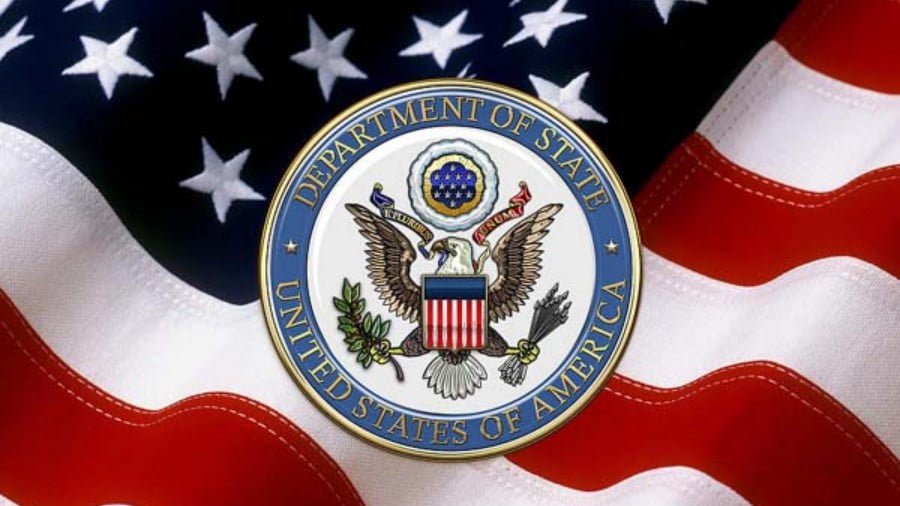Will Lavrov’s Planned Springtime Trip to Japan Lead to Progress on a Peace Treaty?
It’s in Russia’s own long-term geostrategic interests as well as Japan’s and their shared Indian partner’s to diversify the economic stakeholders in its Far Eastern region, which is what Lavrov will likely seek to convey during his planned springtime trip to that island nation. New Delhi can help nudge Tokyo in the direction of understanding this if its leadership is still on the fence about significantly investing in that nearby part of the supercontinent without first signing a peace treaty with Moscow and resolving the so-called ‘Kuril Islands dispute’.
Russian Foreign Minister Lavrov said last week that he plans to travel to Japan sometime in the next couple of months. He spoke about the need for both countries to comprehensively update their relations and smooth out any perceived misunderstandings between them, particularly in the security sphere with respect to Japan’s mutual defense alliance with America. The top diplomat also urged the signing of a long-overdue peace treaty for ending World War II, though he emphasized that it must accurately reflect their outlook for future cooperation.
Japan lays claim to several of the southern Kuril Islands in what it describes as the so-called “Kuril Islands dispute”, an issue that Russia doesn’t formally recognize since it regards those claims as contradicting the outcome of World War II. Their disagreement over those islands’ status remains the most serious stumbling block to a pragmatic rapprochement between these neighboring nations. It’s been masterfully exploited by the US over the decades to divide and rule Russia and Japan to America’s grand strategic benefit. That said, many Japanese genuinely regard this as a very emotive issue for them nowadays.
The author proposed in September 2016 that those two countries consider what he termed the “NISEC” compromise, which refers to the creation of a “Northern Islands Socio-Economic Condominium” between Sakhalin, the Kuril Islands, and Hokkaido. This proposed structure would essentially amount to a free trade zone, which can enable the other to use their counterparts’ islands as a platform for easily entering their marketplaces. The intent is to pioneer a new regional economic community that brings development to Russia’s most far-flung regions.
It remains unclear how politically viable that compromise would be for the Japanese leadership and the public whose perceptions Tokyo would have to properly manage in that scenario, but this proposal could possibly serve as a starting point for creatively restarting relevant negotiations. That stumbling block aside though, the importance of which shouldn’t by any means be underestimated, there’s a practical argument to be put forth for why Japan should seriously consider comprehensively improving its relations with Russia irrespective of whether or not the so-called “Kuril Islands dispute” is resolved.
Simply put, Japan has an enduring geostrategic interest in ensuring that Russia doesn’t become disproportionately dependent on China like some observers have predicted might happen if its present trajectory of over-relying on the People’s Republic as the centerpiece of its so-called “Pivot to Asia” remains on course. Russia is preemptively attempting to avert that scenario by actively engaging India for the purpose of jointly assembling a new Non-Aligned Movement (“Neo-NAM”) aimed a forging a third pole of influence in the increasingly bi-multipolar world order.
This is an advantageous geostrategic development from the Japanese perspective. That island nation is a solid American ally, which explains why it joined the US-led Quad and also recently clinched a military logistics pact with Australia, its second-ever in history after the one that it reached decades ago with its American patron. It’s in Japan’s interests to support Russia’s multi-alignment policy aimed at diversifying its Asian partners, though it shouldn’t have any unrealistic expectations about Moscow’s intentions. To be absolutely clear, the Kremlin will never seek to “contain” China, only “responsibly manage” its rise.
With a view to that end, Russia has been trying to attract more international investment into its geostrategically located, resource-rich, but scarcely populated Far Eastern region. This policy has thus far failed to achieve any significant dividends, notwithstanding India’s symbolic extension of a $1 billion line of credit there during Prime Minister Modi’s attendance at the 2019 Eastern Economic Forum in Vladivostok as President Putin’s guest of honor at the time. Russia urgently needs to breathe new life into this largely moribund policy lest it fails to become a relevant Asian actor like it aspires to be.
It’s here where Japan can play a pivotal role if its leadership decides to invest in mutually beneficial projects there such as the energy ones that new Prime Minister Kishida said on Monday that his country is interested in exploring. This can be done even in the absence of a peace treaty and resolution of the so-called “Kuril Islands dispute”, though the geostrategic motivations related to reducing Russia’s latent disproportionate dependence on China must be clearly communicated to the Japanese public so that they understand the reasons behind doing so in spite of not resolving those two aforementioned issues.
Russia’s special and privileged Indian strategic partner could help nudge Japan in that direction if its leadership is still on the fence about this owing to those two Asian nations’ increasingly close relationship. No country outside of the former Soviet space understands Russia better than India does, which has consistently enjoyed closer relations with Moscow than anyone else for half a century. India is envisioned as the partner with which Russia hopes to jointly assemble the Neo-NAM so it can communicate the grand strategic motivations behind all of this to its Japanese counterparts.
It’s not guaranteed to succeed, but it might be the best chance that Russia has for reviving its largely failed policy to attract considerable non-Chinese foreign investment to its Far Eastern region. India has shown more interest there than anyone else thus far and could even help Japan discover interesting opportunities for its companies, including through potential joint projects, whether focused on the energy sphere or whatever else. There’s also the chance of Japan eventually playing a role in the Vladivostok-Chennai Maritime Corridor (VCMC) that Russia and India jointly unveiled in 2019.
That transregional maritime connectivity project has yet to tangibly manifest itself in anything other than energy shipments owing to the economic consequences of the international community’s uncoordinated efforts to contain COVID-19, but both Great Powers seem intent on prioritizing its development in the coming future. It would be mutually beneficial if Japan, the Republic of Korea, and ASEAN (with Russia’s strategic Vietnamese partner as its centerpiece) participate in the VCMC seeing as how its route transits past their countries.
The Russian Far East lacks the labor required to turn this region into a production powerhouse but it more than makes up for this with its wealth of resources that could be coveted by a plethora of East and Southeast Asian investors. Furthermore, Vladivostok serves as the terminal of the Trans-Siberian Railway (TSR) and can be used by regional businessmen to export their products (whether produced in their own countries, or produced or even just partially assembled in the Russian Far East) to the much more populated European portion of Russia and even as far as the massive EU marketplace.
Additionally, while mutual economic, financial, and investment cooperation is purely apolitical and doesn’t occur to the detriment of any third party like China, those foreign investors like India and especially Japan might take pleasure in having their companies active right along the northern border of the People’s Republic. This poses absolutely no threat to China whatsoever at all, but the optics could be spun by their media in ways that emphasize their national confidence and prestige for domestic political reasons.
It’s in Russia’s own long-term geostrategic interests as well as Japan’s and their shared Indian partner’s to diversify the economic stakeholders in its Far Eastern region, which is what Lavrov will likely seek to convey during his planned springtime trip to that island nation. New Delhi can help nudge Tokyo in the direction of understanding this if its leadership is still on the fence about significantly investing in that nearby part of the supercontinent without first signing a peace treaty with Moscow and resolving the so-called “Kuril Islands dispute”. Observers should therefore pay serious attention to this upcoming visit.







